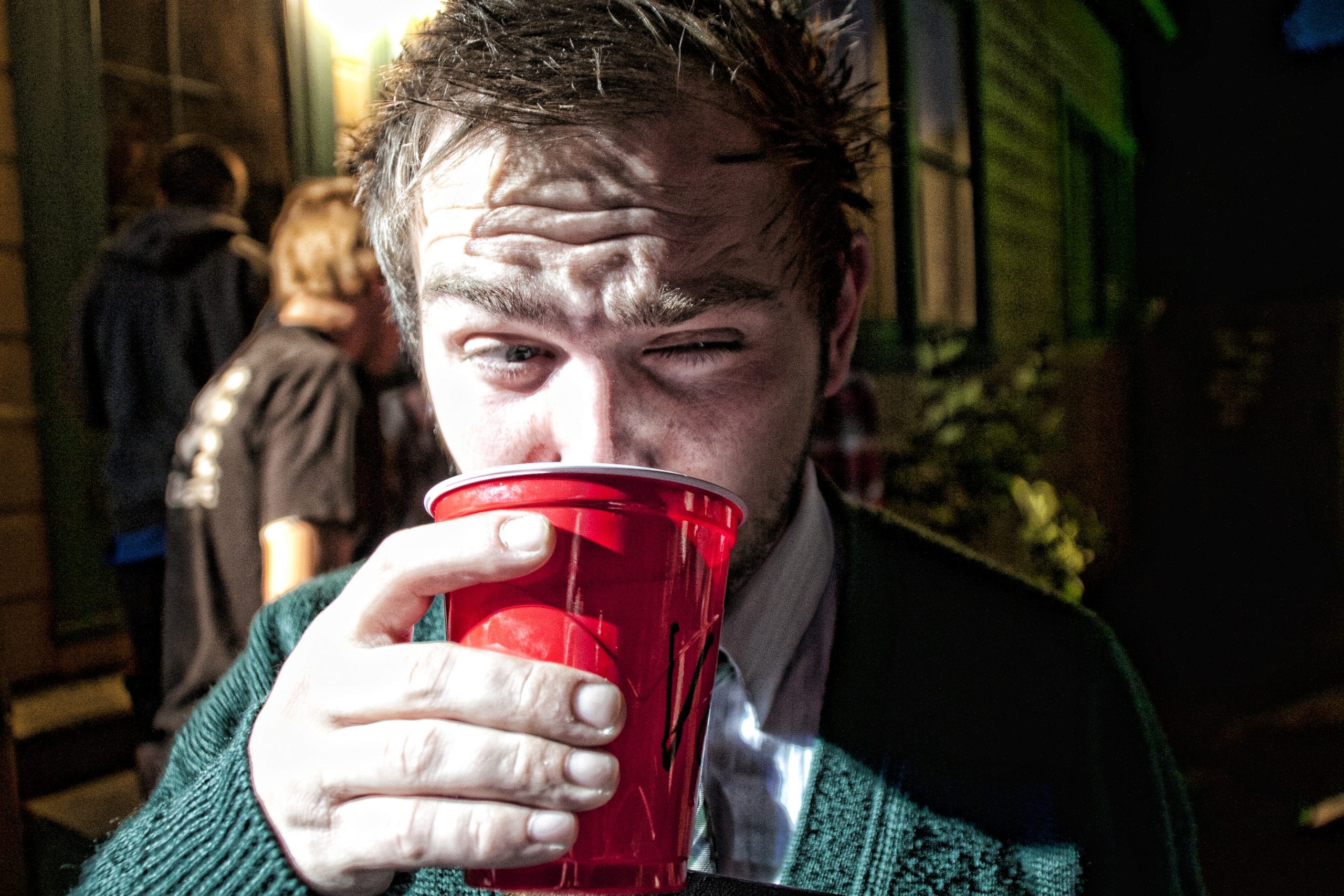In today's society, the words college and drinking have almost become synonymous. College drinking is incredibly prevalent, with four out of five college students admitting to drinking. Obviously there are many risks associated with drinking alcohol, but one of the more common ones among college students is called “blacking out.†One study at Duke University reported that 51% of college students who have drank before have also had at least one alcohol-induced blackout.
Blackouts are defined as a drug-induced (alcohol being considered a drug) amnesia in which individuals do not remember events that occur while intoxicated. The most common sign of a blackout is waking up and thinking to yourself, “What happened?†Those who have experienced an alcohol-induced blackout are all too familiar with the scenario: you wake up in an unknown location, you're missing some articles of clothing, and the last thing you remember is taking tequila shots. Even non-drinkers have at least heard this story from a friend of a friend.
Throughout a night when somebody is drinking, there is a regression of their ability to create memory. When sober, they are capable of making complete memories. As the night continues, a person can experience two types of blackouts: fragmentary and en bloc. Fragmentary blackouts are when drinkers are able to remember events only when asked questions or are reminded about certain things that happened, essentially having incomplete memories. Eventually, an en bloc blackout can occur, which means the drinker is not able to recall anything that happened.
The next day, those who have blacked out will often say they “don't remember anything from the night beforeâ€. But what if I told you that it wasn't that they couldn't remember, but that it is impossible for them to remember?

So what's happening to your brain when you drink alcohol? First, it's important to know how your brain functions normally. The brain is a complex system of trillions of cells called neurons. Neurons send chemical and electrical signals to each other through chemical messengers called neurotransmitters. When you drink alcohol, it can slow the pace at which the neurotransmitters send messages throughout the brain.
More specifically, alcohol interferes with receptors in the region of the brain known as the hippocampus, which is responsible for memory formation. During this interference, neurons start to create chemicals that hinder themselves from communicating properly. With this interrupted communication between cells, the process of creating and strengthening neural connections (long-term potentiation) is inhibited. This stops the brain from being able to convert short-term memory to long-term memory. In other words, when you begin to blackout while drinking, your brain temporarily loses its ability to create any new memories.

This poses a serious problem as alcohol consumption also impairs one's judgement. Often people do many things they regret the next morning, such as sending harsh e-mails to former employers, calling their ex, having unprotected sex, and getting into fights. However, if they blackout, they will have no memory of doing so. This obviously can lead to some potentially negative consequences.
But what's the difference between not remembering (forgetting) and not creating a memory at all? Well, there are three ways in which we can forget something: decay, displacement, and interference.
Decay is when you lose the ‘physical' trace of that memory. This can be compared to losing your class notes. Without that physical place where you stored information, imagine how hard it could be to remember material for an exam when you couldn't study your notes.
Displacement is when new memories are replacing old memories due to a limited capacity for storing information, just like running out of memory space on your computer or smartphone and replacing old applications with new ones.
Lastly, interference is when new information distorts old memories when trying to remember two similar memories, such as two nights in which you went out with friends. For example, if you go bowling all the time, it may be hard to remember which specific night you bowled a 150 and which night you bowled a 62.
As you can see, all of these methods of forgetting involve information that you have stored into memory. But as we have seen, you aren't capable of storing memory while blackout drinking. So how could one ever forget something that they never really remembered in the first place?
 Jonathan Waring is an Athens native and an undergraduate student studying Computer Science at the University of Georgia. When he's not watching Netflix in his room, he can be found watching Netflix in his friends' rooms. He aspires to pursue an advanced degree in Medical Informatics and to one day work on disease tracking software at the CDC. As a reminder he is just one person: not statistically significant nor representative. You can email him at jwaring8@uga.edu or follow him on Twitter @waringclothes. More from Jonathan Waring. Jonathan Waring is an Athens native and an undergraduate student studying Computer Science at the University of Georgia. When he's not watching Netflix in his room, he can be found watching Netflix in his friends' rooms. He aspires to pursue an advanced degree in Medical Informatics and to one day work on disease tracking software at the CDC. As a reminder he is just one person: not statistically significant nor representative. You can email him at jwaring8@uga.edu or follow him on Twitter @waringclothes. More from Jonathan Waring. |
About the Author
- athenssciencecafehttps://athensscienceobserver.com/author/athenssciencecafe/April 17, 2020
- athenssciencecafehttps://athensscienceobserver.com/author/athenssciencecafe/April 12, 2020
- athenssciencecafehttps://athensscienceobserver.com/author/athenssciencecafe/April 3, 2020
- athenssciencecafehttps://athensscienceobserver.com/author/athenssciencecafe/March 30, 2020







